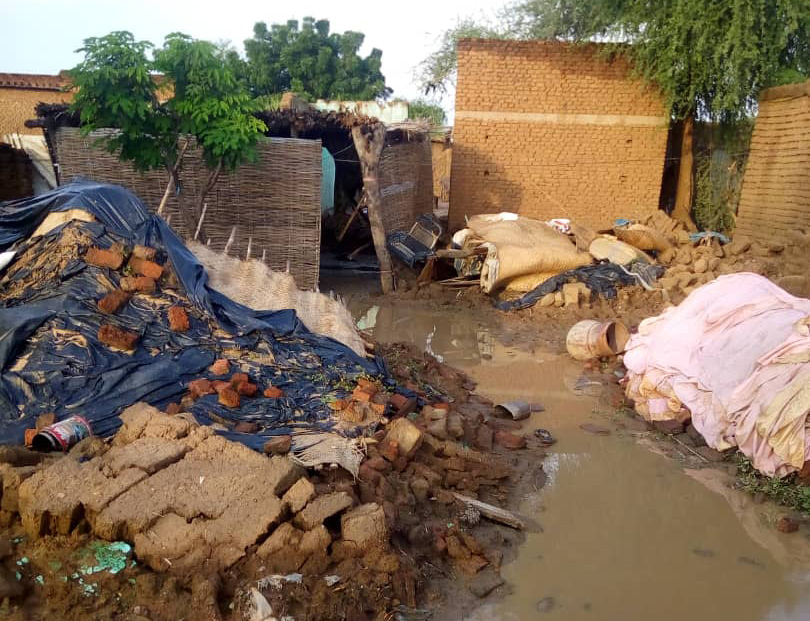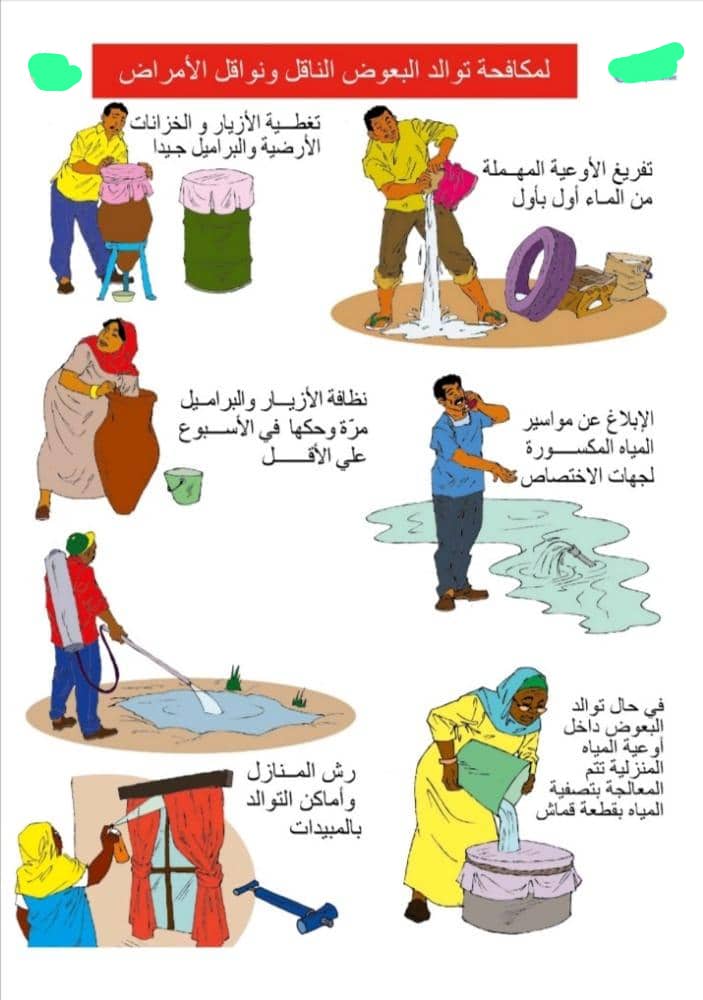Dengue and malaria cases rise in Sudan capital

Sudan’s annual rainy season routinely leaves swaths of flood damage. The resulting standing water is a breeding ground for mosquitoes that carry dengue fever and malaria (File photo: RD)
KHARTOUM / OMDURMAN –
The Ministry of Health in Khartoum has stressed the need for urgent action to control the dengue fever outbreak, along with an increase in malaria infections.
Jihan Eisa, Director of the Early Preparedness Department of the Emergency and Epidemiology Department at the Ministry, said that the situation in greater Khartoum requires “concerted efforts” and a systematic approach at the coordinating briefing of partners and relevant authorities on Monday.
Amani Ahmed, reinforcement official at the Emergency and Epidemic Department, added that 50 per cent of dengue fever cases are present in homes. “This makes containment quite costly,” she said
The Director of Emergency and Epidemic Control at Khartoum Health Mohamed El Tijani said that the number of confirmed dengue fever cases rose from 487 on Friday to 613 at the start of this week.
The number of suspected cases increased from 1,055 to 1,232. Two residents in the Sudanese capital have died.
The highest rate of infection was observed in Block 20 of the densely populated Ombadda locality in Omdurman, El Tijani said.
He further reported that 5,692 cases of malaria were recorded in greater Khartoum last week, which is an increase of 7.56 per cent from the previous week. He noted that the carrier indicators are still high which requires more effort in implementing the ministry’s plans to combat the spread.
At least 26 cases of COVID-19 were also registered.

Acting federal Minister of Health Haisam Ibrahim called for mobilisation in all localities of greater Khartoum, especially in civil society and security sectors, to provide support for the control plan. He stressed that more efforts should be made to implement the plans in a timely manner in a statement on Monday.
As reported by Radio Dabanga last week, the Director of the Department of Emergencies in Khartoum, Mohamed El Tijani, said that the ministry has activated response teams and equipped isolation centres. Seven rapid support teams were formed in addition to placing first aid on standby. El Tijani pointed out that Khartoum is recording the “highest rates of dengue fever since records began.”
210 medical personnel in the state are trained to confront dengue fever, he said, adding that the World Health Organisation has provided examination equipment that shows the result within 20 minutes.
Sudan’s Federal Minister of Health, Dr Haisam Ibrahim, announced on February 15 that dengue fever had emerged in Khartoum and El Gedaref for the first time, noting two separate deaths from symptoms related to dengue fever.
Vector-borne diseases are on the rise in Sudan after recent floods. In North Kordofan, doctors in November last year called to declare the capital El Obeid a disaster area due to the outbreak of dengue fever. Sudan is witnessing its worst outbreak of dengue fever in over a decade, according to the director of the Emergencies Department at the Sudanese Ministry of Health three months ago.
In an interview with Radio Dabanga last week, medical doctor Alaa Nugud stated that the ministry’s announcement of the first wave of the epidemic that began last year, as well as their actions in closing certain areas off to contain the spread, was far too late.











 and then
and then